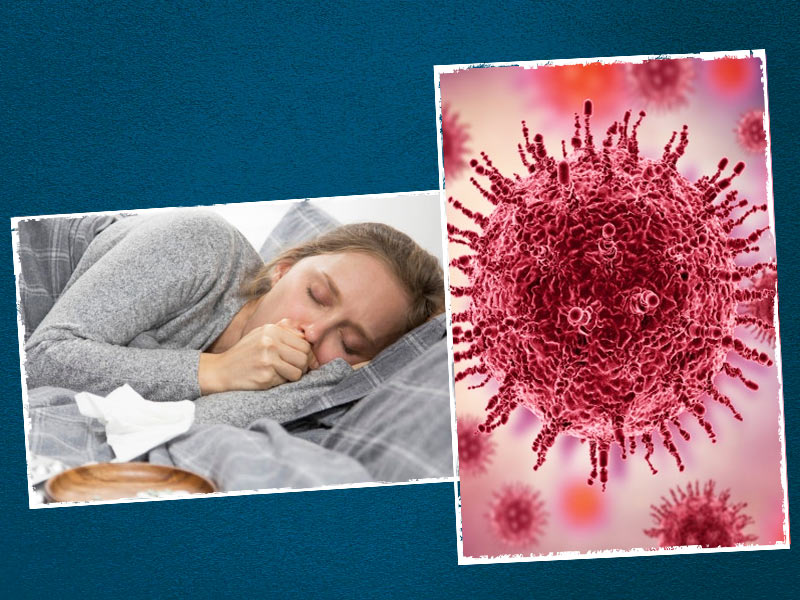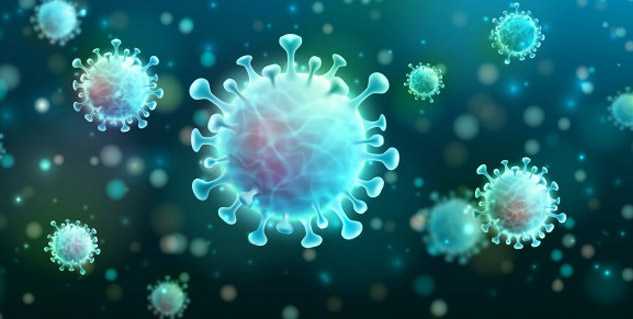
We all know that the novel coronavirus disproportionately attacks immunocompromised people. These are those whose immune systems are weak to fight off infections. But can this condition pave the way for future COVID strains? A recent study conducted in South Africa, where two variants of concern (VOCs) have been discovered until now, has hinted at the same. The study centered around a 22-year-old HIV (human immunodeficiency virus) positive woman who was inadequately treated for the same. She harboured the Beta variant of the novel coronavirus for nine months, during which the virus developed 21 mutations, including in the spike protein.
Table of Content:-
COVID Mutation In Immunocompromised
The study was conducted by researchers from Stellenbosch and the University of KwaZulu-Natal. Here is what it found out:
- Of the 21 mutations in the COVID virus, 10 were present in the spike proteins, which the coronavirus uses to bind to the cells.
- 11 other mutations were present in other parts of the virus.
- Some mutations were consistent with those found in Omicron, a VOC first identified in South Africa, and Lambda, first found in Peru.
- Other mutations might allow the virus to evade antibodies.
- The HIV+ woman inadequately treated for the disease harboured the coronavirus for nine months. However, once she adhered to the antiretroviral treatment for HIV, she was able to beat the COVID infection within six to nine weeks.
Also read: Omicron COVID-19 Symptoms Could Get Worse Due To Overexertion: Know Details Here
What Did The Researchers Say?

(Photo Credit: Freepik)
The study hints that the virus might mutate rapidly in the bodies of the immunocompromised and this could lead to the emergence of newer and deadlier variants.
- The researchers noted that the case describes a “potential” way of the coronavirus mutating into newer variants. However, they stressed that it was still a hypothesis.
- They further noted that the case reinforces the fact that proper antiretroviral treatment is the key to preventing such a situation.
A Little About HIV
Human immunodeficiency virus, or HIV, is a type of virus that harms the immune system, rendering it weak to fight off infection. AIDS, or acquired immunodeficiency syndrome, is the final stage of HIV infection when the virus makes the immune system extremely weak. As opposed to the misconception, not everyone infected with HIV develops AIDS.
HIV is generally treated with antiretroviral therapy (ART) and many on this treatment live a long and happy life. Hence, it’s important to adhere to the treatment for HIV.
Also read: WHO Warns: Next COVID-19 Variant Will Be More Contagious, Know Details Here
Other Illnesses That Harm The Immune System
The immune system is the body’s defense mechanism to fight off infections. If it’s weak, you’ll constantly get sick. There are several immune system-related disorders, such as:
- HIV/AIDS
- Severe Combined Immunodeficiency: Also known as ‘bubble boy disease’, severe combined immunodeficiency is present since birth, and children suffering from it get constantly sick with infections caused by bacteria and viruses.
- Certain medications such as for cancers and those given during an organ transplant can render the immune system weak.
- Also, many times, people have an overactive immune system in that it attacks foreign objects that are harmless. Illnesses that fall into this category include asthma, eczema, allergic rhinitis, etc.
- Then there are autoimmune diseases in which the immune system attacks healthy tissues in the body. Some common autoimmune diseases include type-1 diabetes, rheumatoid arthritis, lupus, etc.
- Not just these, activities such as smoking, alcohol consumption, and poor nutrition can also leave your immune system weak.
A weak immune system does not just make you more susceptible to the novel coronavirus, the same might mutate rapidly in your body, as the study showed. Hence, if you suffer from any immune system-related diseases, then completely adhere to the treatment. Not catching the virus in the first place is what you must strive for. Hence, wear a mask, practice social distancing and take good care of your hand hygiene. Get vaccinated and get the booster shot, if eligible. Healthcare and frontline workers along with those above the age of 65 and suffering from co-morbidities are eligible for the booster dose.
Photo Credit: Freepik
Also watch this video
How we keep this article up to date:
We work with experts and keep a close eye on the latest in health and wellness. Whenever there is a new research or helpful information, we update our articles with accurate and useful advice.
Current Version